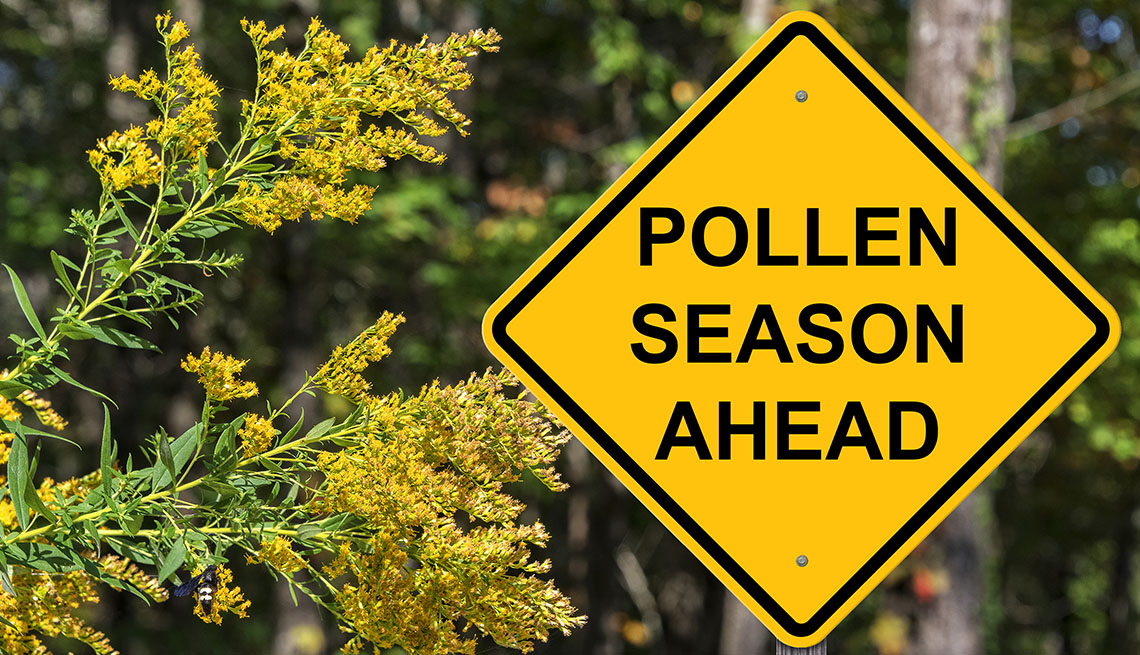Preventive Healthcare
Pollen Allergies: Symptoms, Types, Causes & Treatment
4862 Views
0

The human body is doomed to exist in a hostile environment, in constant contact with foreign elements. Nature equipped humans with an immune system to defend against external attacks and keep them from endangering their survival.
However, this mechanism can become out of control and react to certain substances with abnormally strong responses, which are known as allergies.
Pollen allergies are frequently underestimated because they are associated with seasonal allergies and colds. However, you should be aware of the seriousness of this condition, as it can lead to serious complications.
Pollen Allergy and Its Types
Pollen allergy is a disease caused by an allergic reaction to the different pollen in the atmosphere. This pollen penetrates the human body through the mucous membranes exposed to the air and produces respiratory processes such as rhinitis and asthma.
The most common types of pollen that cause allergies are:
- Grasses (such as ryegrass, fescue, Bermuda grass, etc.)
- Trees (such as cedar, oak, birch, alder, etc.)
- Weeds (such as mugwort, plantain, common ragweed, etc.)
The most important thing about pollen allergies is that they are seasonal. This means they only occur during the months when the pollen plant is in bloom.
Bee Pollen Allergy
Pollen allergy can also be caused by bee pollen. It is a yellow powder that bees collect from flowers and use as food. It is often used as a dietary supplement because it contains vitamins, minerals, proteins, and other nutrients.
If you are often allergic to bee pollen, you may experience hives, itching, swelling, and difficulty breathing if exposed to it. You must be aware of the possible side effects and allergic reactions whenever you take bee pollen or any other dietary supplement.
Symptoms of Pollen Allergy
The list of symptoms that appear due to pollen allergy is extensive. But here are the most common:
- Itchy eyes, watery eyes, swelling under the eyes
- Frequent sneezing
- Allergic rhinitis
- Tiredness and intense fatigue
- Bronchial asthma:
- Headache and irritability
It is essential to note that not all people allergic to pollen will experience all of the symptoms.
Symptoms of Tree Pollen Allergy
Tree pollen allergy is one of the most common allergies. The symptoms of this allergy are similar to that of other allergies. However, some symptoms specific to this allergy include:
- Itchy and watery eyes
- Sneezing
- Runny nose
- Nasal congestion
- Coughing
- Wheezing
- Difficulty breathing
If you are experiencing any of these symptoms, it is important to see an allergist and get properly diagnosed.
Symptoms of Grass Pollen Allergy
Grass pollen allergy symptoms are similar to other allergies, such as hay fever. They can include:
- Sneezing
- Runny nose
- Itchy, watery eyes
- Nasal congestion
- Itchy throat
- Wheezing
- Difficulty breathing
- Coughing
- Skin rash
If you have a grass pollen allergy, you may be more likely to experience symptoms during the spring and summer.
Home Remedies for Pollen Allergies
The best way to combat pollen allergies is to avoid exposure to pollen as much as possible. However, this isn't always practical.
You can use several home remedies for pollen allergies to reduce your symptoms. Some home remedies include:
- Honey: Consuming two tablespoons of honey every day, starting two months before spring, serves as a natural shield. Please keep in mind that honey is not recommended for children under the age of two.
- Onion: Chopping the onion and placing it on a plate near the bed can help open the airways.
- Vapors with eucalyptus mint or lemon balm: Boil these leaves in a saucepan and breath in the vapors to decongest the nose.
- Vitamin C: It is a natural antihistamine and is found in fruits like oranges, lemons, strawberries, grapefruit, and even green leafy foods like broccoli.
- Stay at home: On days with the highest concentration of Pollen, you should stay at home, especially first in the morning and last in the afternoon.
- Chamomile: This tea is a natural antihistamine thanks to flavonoids, a component in many foods that reduce inflammation.
- Thyme infusion: With its ability to kill germs and loosen mucus, it's no wonder this ingredient helps relieve cough and scratchy throats.
- Showers: when you return home, you should take a shower to remove pollen particles that may have been trapped in your clothes and skin.
Conclusion
Pollen allergies are a common problem, affecting millions of people worldwide. Although they can be uncomfortable and annoying, most pollen allergies are not serious and can be effectively treated with over-the-counter or prescription medications. See your doctor for a proper diagnosis if you think one may have a pollen allergy. With proper treatment, most people with pollen allergies can enjoy symptom-free days. Book Pollen Allergy Test with Metropolis.













1701259759.webp)









 WhatsApp
WhatsApp